Mini & Micro Bernedoodles for Sale in Wisconsin
Hypoallergenic & Family-Friendly
“Bernese Mountain dog poodle mix, Bernese Mountain Doodle”
“Friendly, gentle, smart, affectionate.
Best Suited For: Families with children, active singles and seniors, and houses with yards.
”
Mini & Micro Bernedoodles: The Perfect Family Companion for Midwest Families
Are you looking for an adorable, hypoallergenic, and family-friendly Mini or Micro Bernedoodle? At Stokeshire Designer Doodles, we specialize in breeding Mini & Micro Bernedoodles with excellent health, temperament, and stunning coat colors. These small-sized Bernedoodles are perfect for apartments, families with children, and active individuals seeking a loving companion.
Trained Bernedoodle puppy
Why Choose a Mini or Micro Bernedoodle?
State Licensed & Good Dog Vetted Breeders in Wisconsin - Top Ethical Breeders in United States
Mini & Micro Bernedoodles combine the intelligence of a Poodle with the loyal, affectionate nature of a Bernese Mountain Dog in a compact size.
✔ Small & Adaptable – Perfect for apartment living or small homes.
✔ Hypoallergenic & Low-Shedding – Ideal for families with allergies.
✔ Intelligent & Easy to Train – Highly responsive to commands.
✔ Loyal & Affectionate – A perfect lifelong companion.
Mini & Micro Bernedoodle Sizes
We breed Mini & Micro Bernedoodles in different sizes to fit your lifestyle:
Micro Mini Bernedoodles: 10-24 lbs, 12-18 inches tall.
Mini Bernedoodles: 25-50 lbs, 18-22 inches tall.
Each puppy is carefully bred for ideal temperament, health, and coat quality to ensure you receive the best furry friend possible.
How Big Do Mini Bernedoodles Get?
We breed Mini and Micro Bernedoodles in a variety of sizes to suit families, individuals, and lifestyles of all kinds. Micro Mini Bernedoodles typically range from 10–24 lbs and stand 12–18 inches tall, making them perfect for apartment living or those seeking a more compact companion. Mini Bernedoodles, slightly larger at 25–50 lbs and 18–22 inches tall, offer the same beloved traits in a medium-sized package. No matter the size, each puppy is intentionally bred with a focus on health, structure, coat quality, and the kind of loving temperament that makes them exceptional companions—and even therapy dog candidates.
A multigenerational Bernedoodle where both parents are under 50lbs will yield the best chance at a puppy being in a similar size range. F1 Bernedoodles can be very hard to predict.
F1 Mini Tri Bernedoodle
Mini Bernedoodle vs. Standard Bernedoodle: Which One is Right for You?
While Standard Bernedoodles are larger and require more space, Mini & Micro Bernedoodles offer the same loving temperament in a smaller package. They are ideal for busy professionals, smaller homes, and families wanting a travel-friendly dog.
Bernese Mountain Dog - Brigitta
Training & Temperament
Mini & Micro Bernedoodles are highly intelligent, making them easy to train. They thrive on positive reinforcement and love to learn new tricks. They are also great with children, other pets, and first-time dog owners.
🌟 Best Training Tips for Your Mini Bernedoodle:
Start socialization early to prevent shyness.
Use positive reinforcement techniques.
Provide mental stimulation to keep them engaged.
Enroll in puppy training classes for the best results.
Health & Lifespan
Mini & Micro Bernedoodles typically live 12-16 years and are bred for optimal health. Our puppies undergo comprehensive health testing, ensuring they are free from known genetic disorders.
Common Health Benefits:
Lower risk of hip dysplasia compared to standard-sized breeds.
Hybrid vigor improves overall health and longevity.
Ethical breeding practices reduce the chance of inherited conditions.
Emma-Mavi held by her loving guardian home mom in their home
Bernese Mountain Dog Puppy
Furnishings can require extra grooming and maintenance to keep them clean and free of tangles and mats. Regular brushing and trimming may be necessary to keep the furnishings looking their best and to prevent discomfort or irritation for the dog.
It's always recommended to spend time with a dog before committing to ownership, especially if you have allergies, to see if you have a reaction to that particular dog. It's also important to consult with an allergist or doctor for proper diagnosis and management of allergies.
Bernedoodle SIzes
Overall, Bernedoodles are a popular breed of dog because they are known for being friendly, hypoallergenic, and adaptable to different lifestyles. Their cute appearance and lovable personality also make them a popular choice for many dog lovers.
Micro Mini Bernedoodles
The Micro/Mini Bernedoodle stands at 12 to 18 inches tall at the shoulder and weighs about 10 to 24 pounds. Micro Mini Bernedoodles have a low-shedding coat that is curly or wavy and comes in a variety of colors, including black, white, brown, and gray. They are also known for being intelligent and easy to train, making them good candidates for obedience training and other dog sports. In our program, we have two F1 Miniature Bernedoodles that we breed to our toy poodle, Emery to produce our smallest variety of Bernedoodles at Stokeshire.
Miniature Bernedoodles
The Miniature Bernedoodle stands at 18 to 22 inches tall and weighs 25 to 50 pounds. You can achieve an F1 Mini Bernedoodle when breeding a Bernese to a Toy or Minature Poodle. Our Bernese Moutain Dog, Feta, paired with Emery or Phoenix will produce offspring in the size range, however, sometimes first generations of males can reach sizes larger than 50lbs.
Standard Bernedoodles
The Standard Bernedoodle stands at 23 to 29 inches and weighs 50 to 100 pounds. Males are generally larger than females. Our Moyen Size will be between a Standard and a Miniature. . You can read more about therapy dogs and how standard and miniature bernedoodles may be some of the best options available.
Additional Bernedoodle Information
Bernedoodles are generally low-shedding dogs, thanks to the Poodle's hypoallergenic coat. However, they do require regular grooming to maintain the health of their coat and skin. They are also generally easy to train and are suitable for a variety of activities, including obedience, agility, and therapy work.
Possibly the fluffiest, softest of any Stokeshire doodle is our Bernedoodle. If you are looking for a smart and loyal dog that will be your companion for life, look no further than the Bernedoodle. Also known as the Bernese Mountain Poo, this breed is a combination of the Bernese Mountain Dog and the Poodle. These hybrid fluffy pooches combine the best of both worlds: the intelligence and low shedding coat of the Poodle combined with the laid-back, yet incredibly loyal nature of the Bernese.
Bernedoodles are generally good with children and other pets, and they are often used as therapy dogs due to their friendly and sociable nature.
Bernedoodle Mom Feta Berense Mountain Dog Dam
The goal of crossbreeding these two popular dogs is to create a perfect companion for families of all shapes and sizes.
While Bernedoodle should ideally be a perfect mix of the parent breeds, with hybrids there is no guarantee. Not only that, in a litter of fluffy little Bernese Mountain Poos, all of the puppies might look different from each other and each one of them could have a wildly different personality as well. For example, your Bernedoodle puppy might take after its Poodle parent more and be a furry brainiac. Or they might favor their Swiss ancestry and turn out a bit more stubborn than you’d expect.
Bernedoodles are playful and affectionate – they do well with children and they love to spend time with their families.
From the Bernese Mountain Dog side, Bernedoodles can be a little wary around strangers so early socialization is important. Toy and mini Bernedoodles also tend to be more energetic and stubborn than standard Bernedoodles. One thing to be wary of with this breed is that they need a lot of human interaction, so they shouldn’t be left alone for long periods of time. This also means that separation anxiety could end up being a problem for Bernedoodles. It all comes down to whether or not they are not properly socialized on time. Because of this, it might be smart to start crate training them while they’re quite young. Teaching them that a crate could be their little safe space while you’re away at work could help them feel calmer and more relaxed whenever you’re not at home.
Their motivation is not to work, not to guard, but rather to be cheerful and spend time with the people that they love.
Our Pending Mini Micro Bernedoodle Litters
Bernese Mountain Dog as an Adult
Bernedoodle FAQ
Are Bernedoodles Good Family Pets?
At Stokeshire we believe that Bernedoodles and their close cousins the AMD & GMD breeds are some of the most well suited dogs for families with children. Bernedoodles are often considered to be good family pets for a number of reasons. Here are a few key factors:
Berndoodle as a Family Pet
Bernedoodles are known to be friendly, sociable, and affectionate dogs that adore spending time with their families. They also have a loyal and protective nature and get along well with children and other pets. Bernedoodles are intelligent and quick learners, making them easy to train and a great choice for activities such as obedience training and agility. Additionally, they are often bred with hypoallergenic coats, making them a perfect fit for families with allergies. Regular exercise and mental stimulation are essential for Bernedoodles, who are usually active dogs. However, they are considered a healthy breed with a long lifespan, and reputable breeders screen their dogs for genetic health issues to minimize the risk of inherited conditions. Bernedoodles can also play an essential role in helping children with Autism Spectrum Disorder (ASD) as service dogs or therapy dogs. Poodles and Bernese Mountain Dogs are commonly used as service or therapy dogs for children with ASD due to their hypoallergenic coats, intelligence, gentle nature, and affectionate temperament. However, not all dogs are fit for working with children with ASD, and it's crucial to work with a qualified service dog organization or trainer to ensure that the dog is well-trained and well-matched to the child's needs.
WHAT COLOR ARE BERNEDOODLES?
Bernedoodles can come in a variety of colors, depending on the colors of their Bernese Mountain Dog and Poodle parents. Some common colors for Bernedoodles include black, white, brown, cream, and a combination of these colors, often in a pattern known as "tri-color." Tri-color Bernedoodles typically have a black, white, and brown coat, with the brown being a rust or mahogany color. Other less common colors for Bernedoodles include apricot, red, and silver. The exact color and pattern of a Bernedoodle's coat can vary depending on genetics, so each Bernedoodle is unique! At Stokeshire our program works to secure the iconic Berner look with its regal tri-colored coat. We’ve also added blue merle and red merle into our lines.
List of Bernedoodle Coat Colors:
1. Black: Bernedoodles can be solid black in color, giving them a sleek and elegant look.
2. Brown: Also known as "chocolate," brown Bernedoodles have rich, warm tones that are absolutely eye-catching.
3. Phantom: Bernedoodles with the phantom coloring have a black base with markings of a lighter color, such as tan or cream, on their eyebrows, muzzle, chest, and legs.
4. Sable: This color variation features a base color of gold, red, or tan with black-tipped hairs in a grizzled pattern, creating a beautiful blend.
5. Merle: Bernedoodles with the merle pattern have a base color with patches of lighter or darker color, creating a visually captivating and unique appearance.
6. Tricolor: The tricolor Bernedoodles have a base color of black with contrasting white markings on their chest, muzzle, and paws, as well as tan or rust-colored accents on their eyebrows and cheeks.
7. Parti: This coloring features a predominantly white coat with patches of any other color, such as black, brown, or tan, dispersed throughout the body, giving them a fun and playful look.
8. Brindle: Bernedoodles with the brindle pattern have a base color with streaks or stripes of a darker color, creating a striking and distinctive coat.
While these are the most common colors found in Bernedoodles, it is important to note that Bernedoodles can have various combinations and shades within these colors, making each pup a unique and beautiful individual!
Black Tricolor Bernedoodle Puppy
Black Tri Berneoodle Puppy
Brown tri Bernedoodles are a popular color choice for many people, as the rich brown color can be a striking contrast against the black and white. However, it's important to note that the color and pattern of a Bernedoodle's coat can vary widely depending on genetics, so each Bernedoodle is unique!
Brown Tri Bernedoodle Puppy
A Brown Tri-Color Bernedoodle puppy is a type of mixed-breed dog that is a cross between a Bernese Mountain Dog and a Poodle. The "tri-color" in the name refers to the three predominant colors in their coat, which typically include brown, black, and white. Bernedoodles are known for their friendly and affectionate nature, making them great companions for families and individuals alike. This coat combination is only achievable on a second-generation cross where both lines carry brown as it is recessive.
Blue Merle Bernedoodle Puppy
A blue merle Bernedoodle is a Bernedoodle with a unique coat color and pattern that is the result of breeding a Bernese Mountain Dog and a Poodle with a merle gene. The Merle gene is a dominant gene that can affect the coat color and pattern of a dog.
Blue merle Bernedoodles have marbled or dappled coat that combines shades of gray or blue with black or brown patches. The blue color is caused by the dilution of the black color, resulting in a gray or blue hue. Merle patterns can vary widely and can create a range of striking and unique coat patterns.
It's important to note that breeding merle dogs can carry some health risks, as the merle gene is also linked to certain genetic health issues like deafness, blindness, and abnormalities of the eye, ear, and skeletal system. As such, reputable breeders take extra care when breeding merle dogs to ensure that they are healthy and free from any associated health issues.
Red Merle Bernedoodle Puppy
Producing a Red Merle Chocolate Brown Tri Merle Bernedoodle requires a thoughtful approach to selective breeding. Bernedoodles, which result from the crossbreeding of Bernese Mountain Dogs and Poodles, exhibit diverse coat colors and patterns driven by parental genetics. To attain the specific coat colors and patterns you desire, a solid grasp of genetic principles is crucial, along with the careful selection of parent dogs that possess the desired traits.
The Brown Tri-Color coat variation can be achieved through second-generation crosses. In recent years, the introduction of the merle modification into the breeding pool has occurred, originating from Poodle lines that carry the tri, parti, and merle genes. It's worth noting that Red Merle Tri Bernedoodles are exceptionally rare among Bernedoodle
Tri Parti Bernedoodle Puppy
A "Tri-Parti" Bernedoodle is a specific color pattern seen in some Bernedoodle puppies. This coat color pattern typically includes three distinct colors in the dog's coat. The term "Tri-Parti" is often used to describe the following color combination:
Black or Brown: This color usually forms the base of the coat. It can be either black or brown, depending on the genetics of the parents.
White: White is the second prominent color and is often seen as markings on the face, chest, paws, and tail.
Tan or Rust: The third color is typically a tan or rust color, and it is often seen as highlights or markings on the eyebrows, cheeks, legs, and sometimes the chest.
The combination of these three colors creates a distinctive and attractive coat pattern in Tri-Parti Bernedoodles. It's important to note that coat patterns can vary among individual dogs, and not all Bernedoodles will exhibit this exact pattern. The specific appearance of a Tri-Parti Bernedoodle's coat can depend on the genetics inherited from its Bernese Mountain Dog and Poodle parents.
Example of cream, merle, phanotm, & sable F1B Berndoodle Puppies
Brown Tri Bernedoodle
What are the different generations of bernedoodles?
There are several different generations of Bernedoodles, which are determined by the breeding of Bernese Mountain Dogs and Poodles. The different generations of Bernedoodles are:
F1 Bernedoodles: The first generation of Bernedoodles are known as F1 Bernedoodles, which are the result of breeding a purebred Bernese Mountain Dog with a purebred Poodle. F1 Bernedoodles are typically 50% Bernese Mountain Dog and 50% Poodle, which can result in a range of coat types and personalities.
F1b Bernedoodles: F1b Bernedoodles are the result of breeding an F1 Bernedoodle with a purebred Poodle. This generation is typically 75% Poodle and 25% Bernese Mountain Dog, which can result in a curlier, hypoallergenic coat that is similar to a purebred Poodle.
F2 Bernedoodles: F2 Bernedoodles are the result of breeding two F1 Bernedoodles together. This generation can result in a wider range of coat types and personalities, as the puppies will have a mix of Bernese Mountain Dog and Poodle genes.
F2b Bernedoodles: F2b Bernedoodles are the result of breeding an F1 Bernedoodle with an F1b Bernedoodle. This generation is typically 62.5% Poodle and 37.5% Bernese Mountain Dog, which can result in a hypoallergenic coat that is similar to a purebred Poodle.
F3 Bernedoodles and beyond: F3 Bernedoodles and beyond refer to any subsequent generations of Bernedoodles that result from further breeding between Bernedoodles. These generations can continue to produce a wide range of coat types and personalities.
A reverse F1b Bernedoodle is a type of Bernedoodle that is created by breeding a purebred Poodle with an F1 Bernedoodle. This is different from a traditional F1b Bernedoodle, where an F1 Bernedoodle is bred with a purebred Poodle.
In a reverse F1b Bernedoodle, the puppies will have more Bernese Mountain Dog genetics than a traditional F1b Bernedoodle, as the Bernese Mountain Dog parent is an F1 Bernedoodle rather than a purebred Bernese Mountain Dog. This can result in puppies with a wider range of coat types and personalities, as they will have a mix of Poodle and Bernese Mountain Dog genetics.
It's important to note that reverse F1b Bernedoodles are a less common type of Bernedoodle and may be more difficult to find from a reputable breeder. As with any Bernedoodle, it's important to do your research and choose a breeder who prioritizes the health and welfare of their dogs. These can sometimes be referred to as Ultra Bernedoodles by some breeders.
Multigenerational Bernedoodles are Bernedoodles that have been bred over several generations, typically by breeding Bernedoodles with other Bernedoodles rather than with purebred Bernese Mountain Dogs or Poodles. By doing so, breeders can work to establish certain traits, such as coat type or size, while also minimizing the risk of genetic disorders and increasing the predictability of certain characteristics.
Multigenerational Bernedoodles can vary in size, coat type, and temperament depending on the specific breeding practices and genetics of the individual dog. Generally, multigenerational Bernedoodles have a higher likelihood of having a hypoallergenic coat and a more consistent appearance compared to earlier-generation Bernedoodles.
It's important to note that the specific traits of each Bernedoodle can vary depending on their individual genetics and the breeding practices of their breeder.
Can BernedoodleS be a service or Therapy Dog?
Yes, a Bernedoodle can potentially be a therapy dog. Therapy dogs are dogs that are trained to provide comfort, companionship, and emotional support to people in hospitals, nursing homes, schools, and other settings. They are often chosen for their friendly and calm temperaments, and their ability to adapt to different environments and situations.
EMS or Therapy Dog Options
Are you considering a Bernedoodle as a therapy dog? These beloved pups, a mix of Bernese Mountain Dog and Poodle, are renowned for their intelligence, loyalty, and affectionate nature. They make excellent therapy dogs due to their ability to learn appropriate behavior in various settings and interact with people in a calming and comforting way.
However, it's important to note that becoming a therapy dog is a rigorous process requiring specific training and certification. We recommend working with a professional trainer who can help you and your furry friend learn the necessary skills and pass the required tests.
Bernedoodles form strong bonds with their owners and are always ready to show affection when needed.
Thanks to their intelligence, they are easy to train and won't give you a hard time during training sessions. They are not only obedient and loyal but also eager to please their owners, providing a constant source of companionship and affection.
Bernedoodles have a friendly, loving, and social nature, making them ideal therapy dogs. They also have an exceptional temperament and are comfortable with being touched or petted on any part of their body. Their minimal shedding makes them an ideal breed for patients who are allergic to dog dander and hair.
Choose from three sizes to find the perfect Bernedoodle to meet your needs and requirements.
Male Bernese Mountain Dog Stud
How do you care for a Bernedoodle?
Grooming a Bernedoodle Puppy
Tri Bernedoodle Coat Care
Provide proper nutrition: Bernedoodles are active dogs and will need a high-quality diet to support their energy needs. Choose a dog food that is appropriate for their age, size, and activity level.
Grooming: Bernedoodles have a thick, wavy coat that will require regular grooming. They may need to be brushed and combed several times a week to prevent tangles and mats. They may also need to be trimmed or shaved by a professional groomer on a regular basis.
Exercise: Bernedoodles are energetic and need daily exercise to stay healthy and happy. They enjoy walks, runs, and playtime in a fenced-in yard.
Training: Bernedoodles are intelligent and can be easy to train, but they can also be stubborn at times. It is important to start training and socialization early, using positive reinforcement techniques.
Health care: Bernedoodles are generally healthy dogs, but they may be prone to certain health conditions such as hip dysplasia and eye problems. It is important to take them for regular check-ups and to follow the advice of your veterinarian.
By providing proper care, including a healthy diet, regular grooming, daily exercise, training, and regular health care, you can help your Bernedoodle live a long and happy life.
Are Bernedoodles trainable?
Bernedoodles are generally considered to be intelligent and eager to please, which can make them relatively easy to train. However, as with any breed, it's important to start training and socialization early and to be consistent, patient, and positive in your training methods. It's also important to keep in mind that every individual dog is different and may have their own unique personality and learning style, so it's always a good idea to consult with a professional trainer or behaviorist if you have any concerns or need additional guidance. At Stokeshire, we offer 4,8, & 12 Week Doodle School.
Explore our Bernedoodle Lists
Let’s Chat About your Dream Mini or Micro Bernedoodle Puppy!
SEARCH FOR A PENDING BERNEDOODLE LITTER BELOW
- Green Eyes
- Wavy
- Brown & White
- Savi
- Liver
- Black Tri
- Apricot
- Buttercup
- Tri
- Phantom
- Blue Merle
- Loose
- Parti
- Fully Furnished
- F1
- F2
- Chocolate Merle
- Olive
- Medium
- Flat
- Red & White
- Toy
- Brown
- Mavi
- Multigen
- Large
- Standard
- Micro
- Furnished
- Curly
- Mini
- Mozzi
- Emery
- Brown Merle
- Merle
- Moxie
- Blue
- Chocolate
- Ultra
- Brown Tri
- Lux
- Tri Merle
- Red
- Blue Eyes
- Nora
- F1B
- Improper Coat
- Chocolate Tri
- Unfurnished
- Red Merle
- Straight

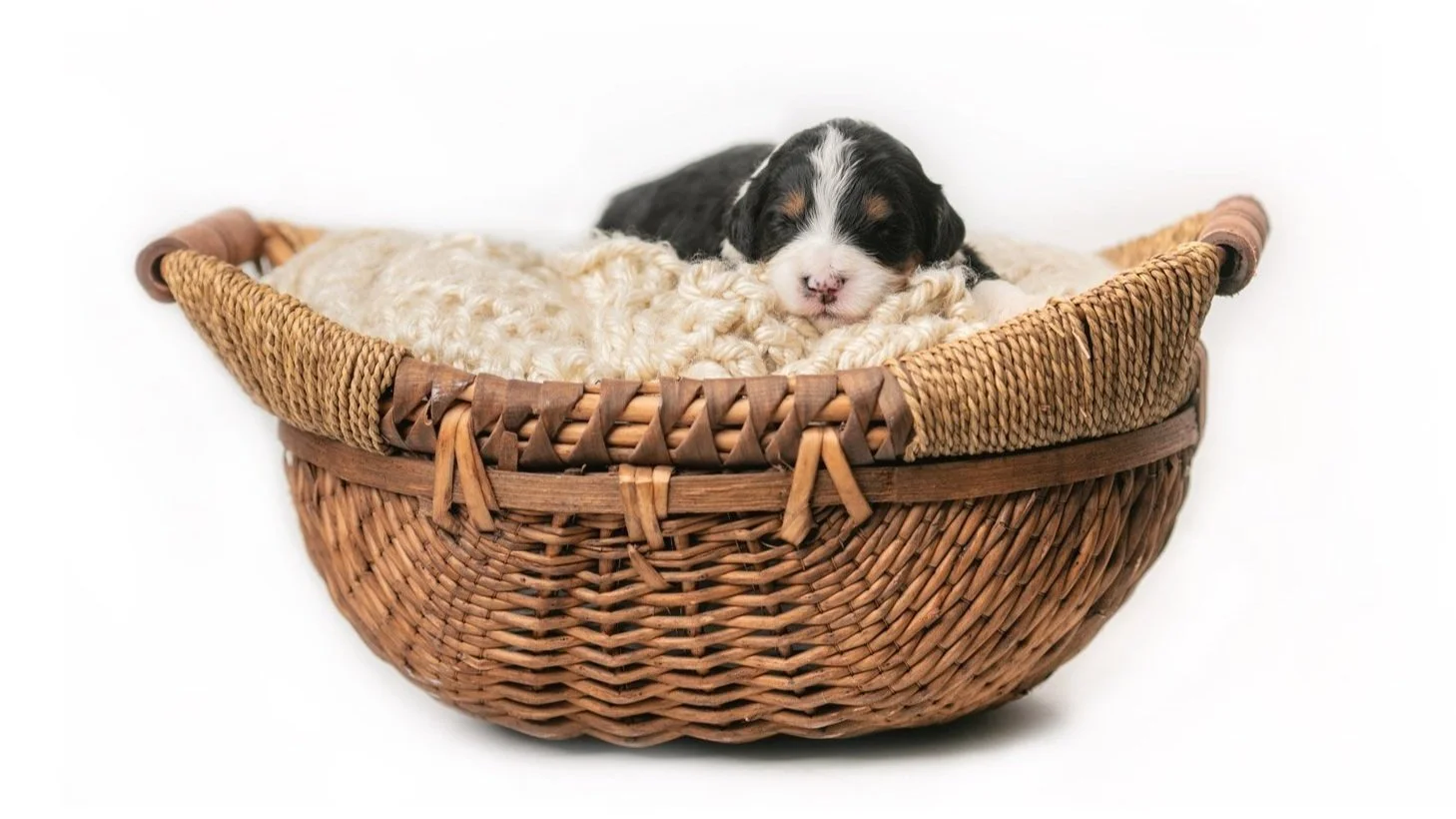







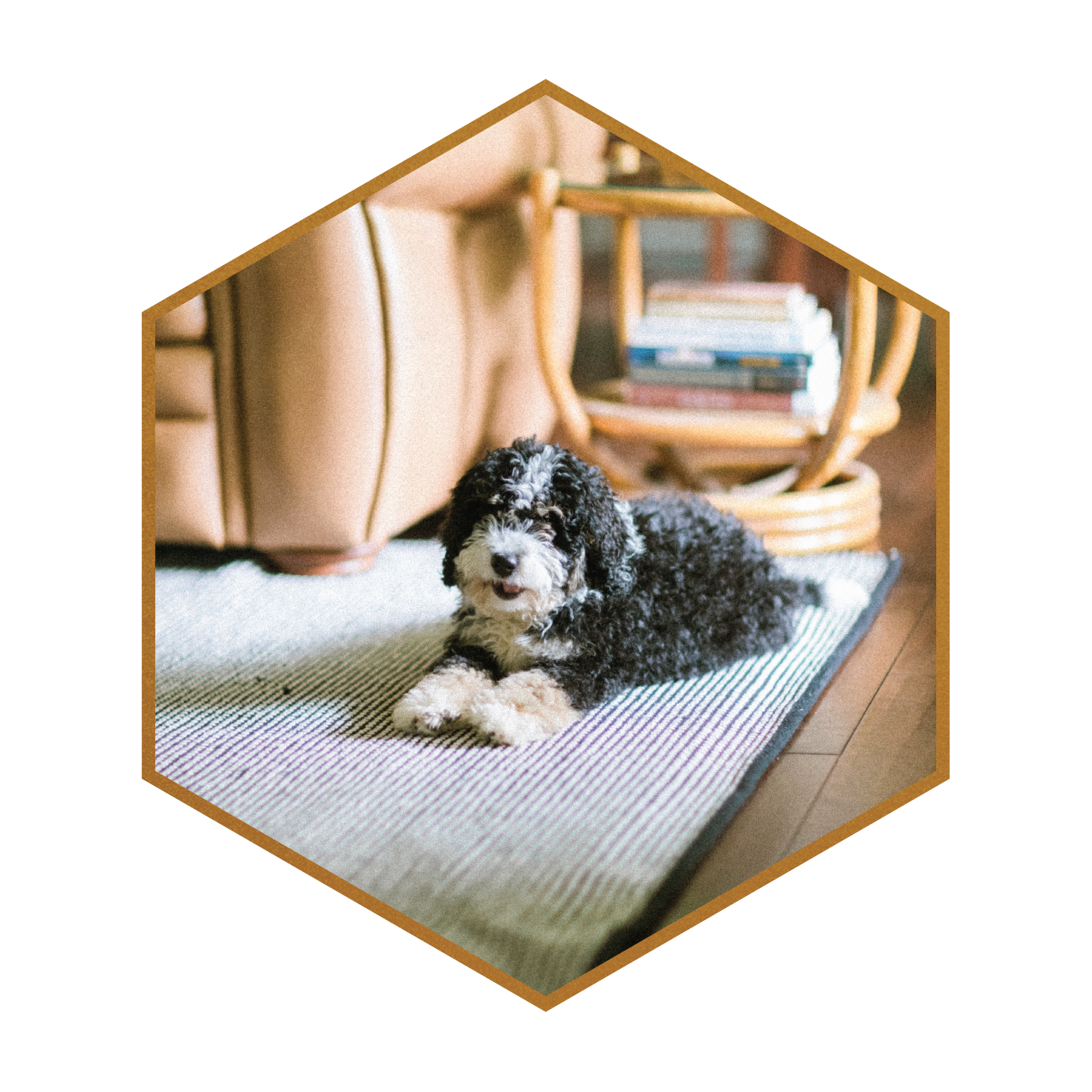

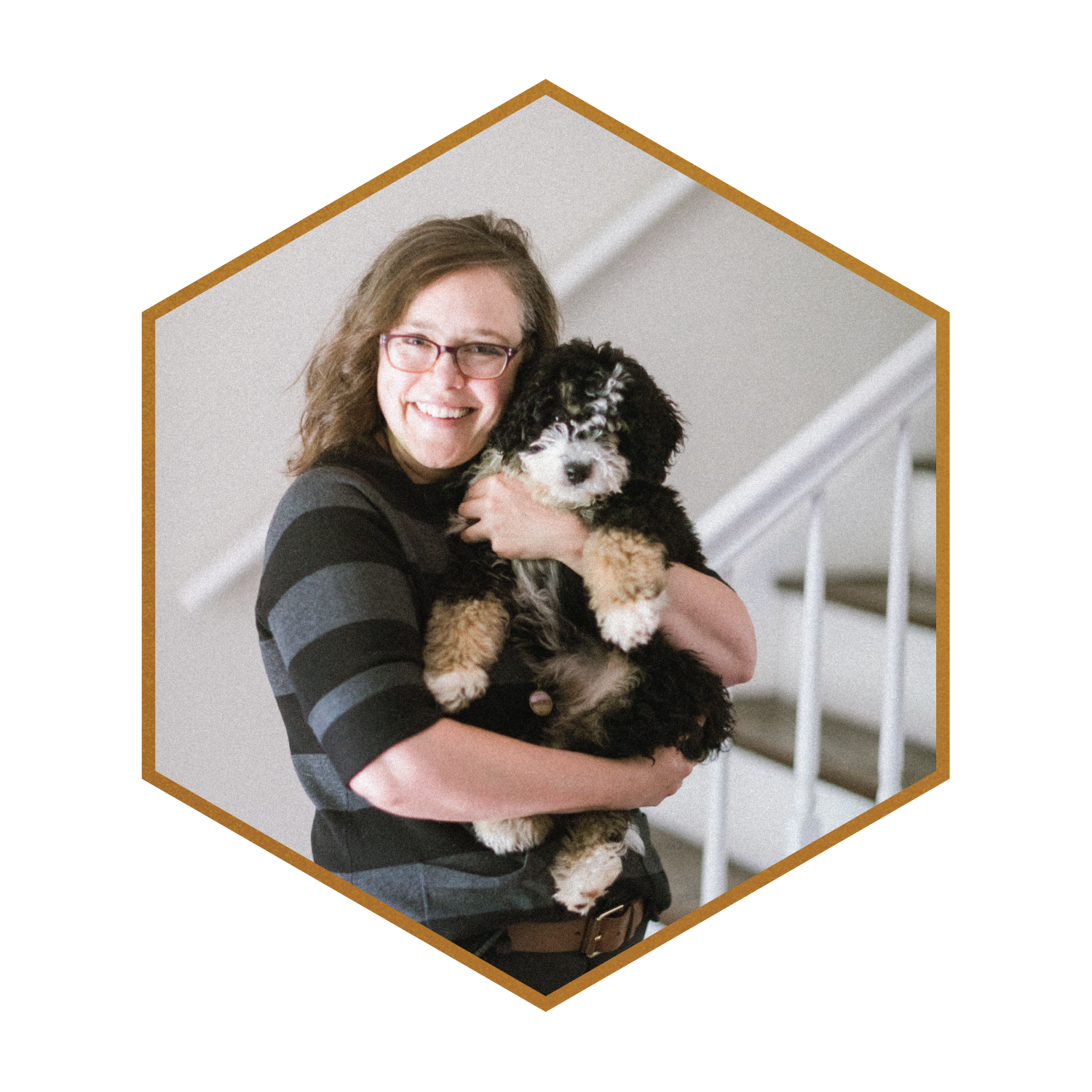
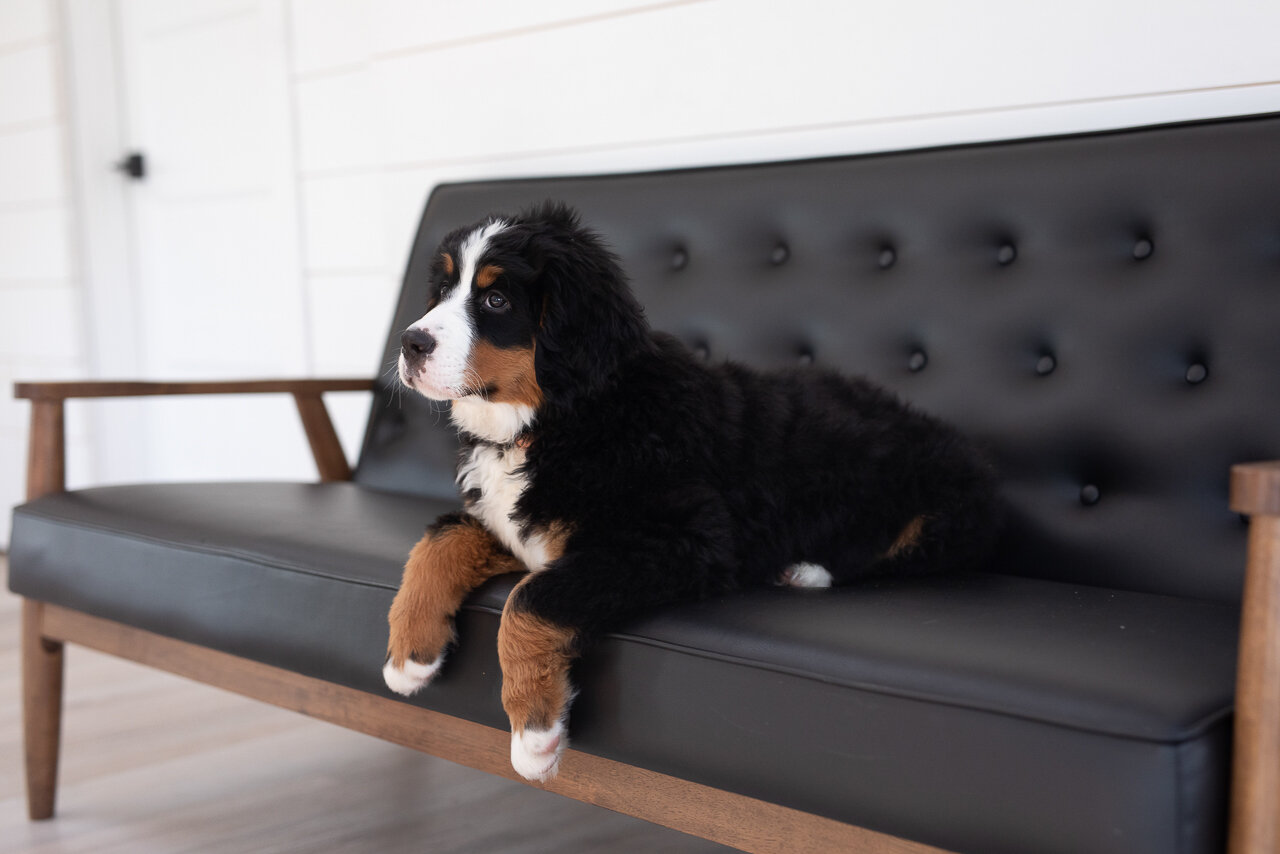
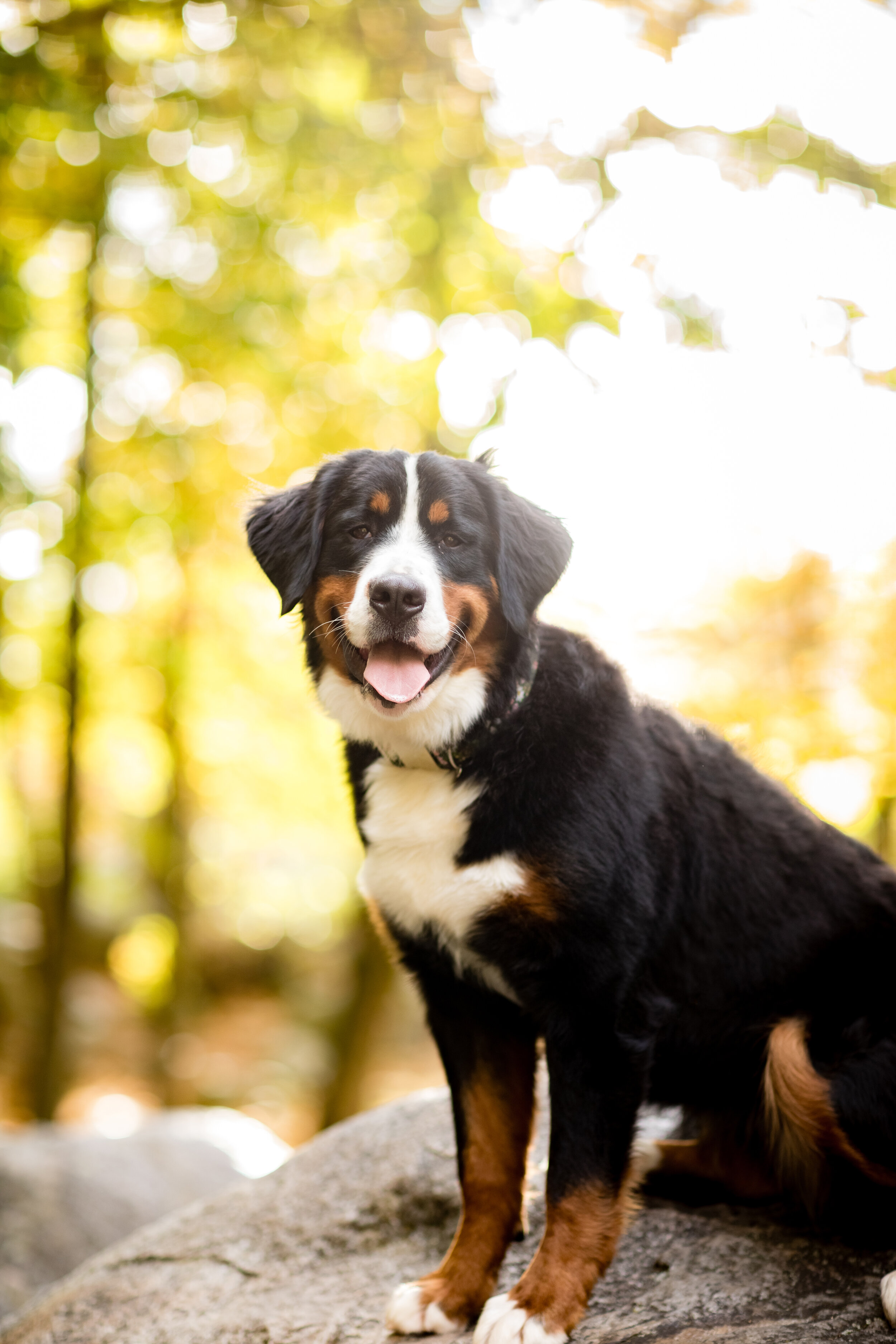
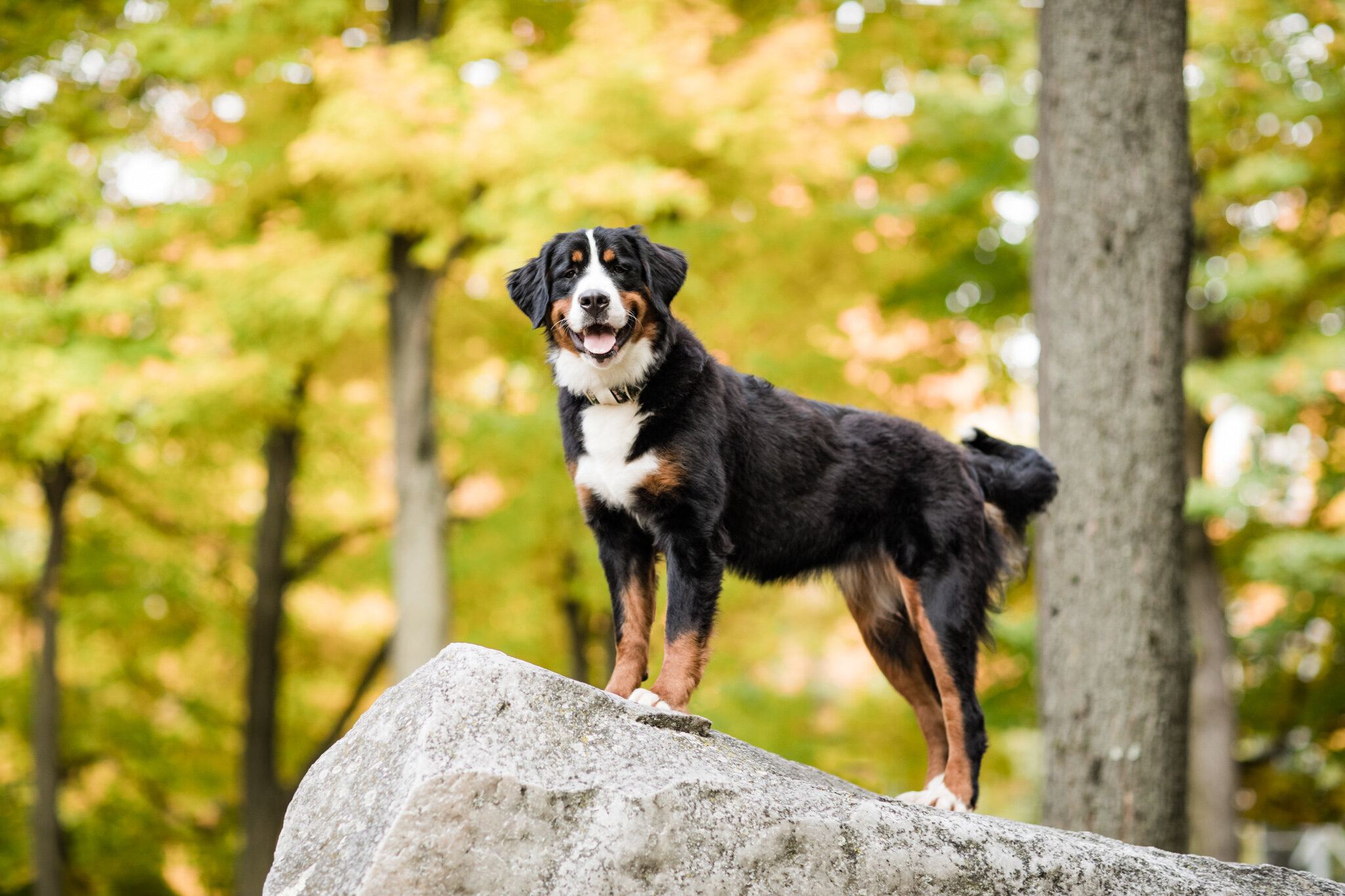
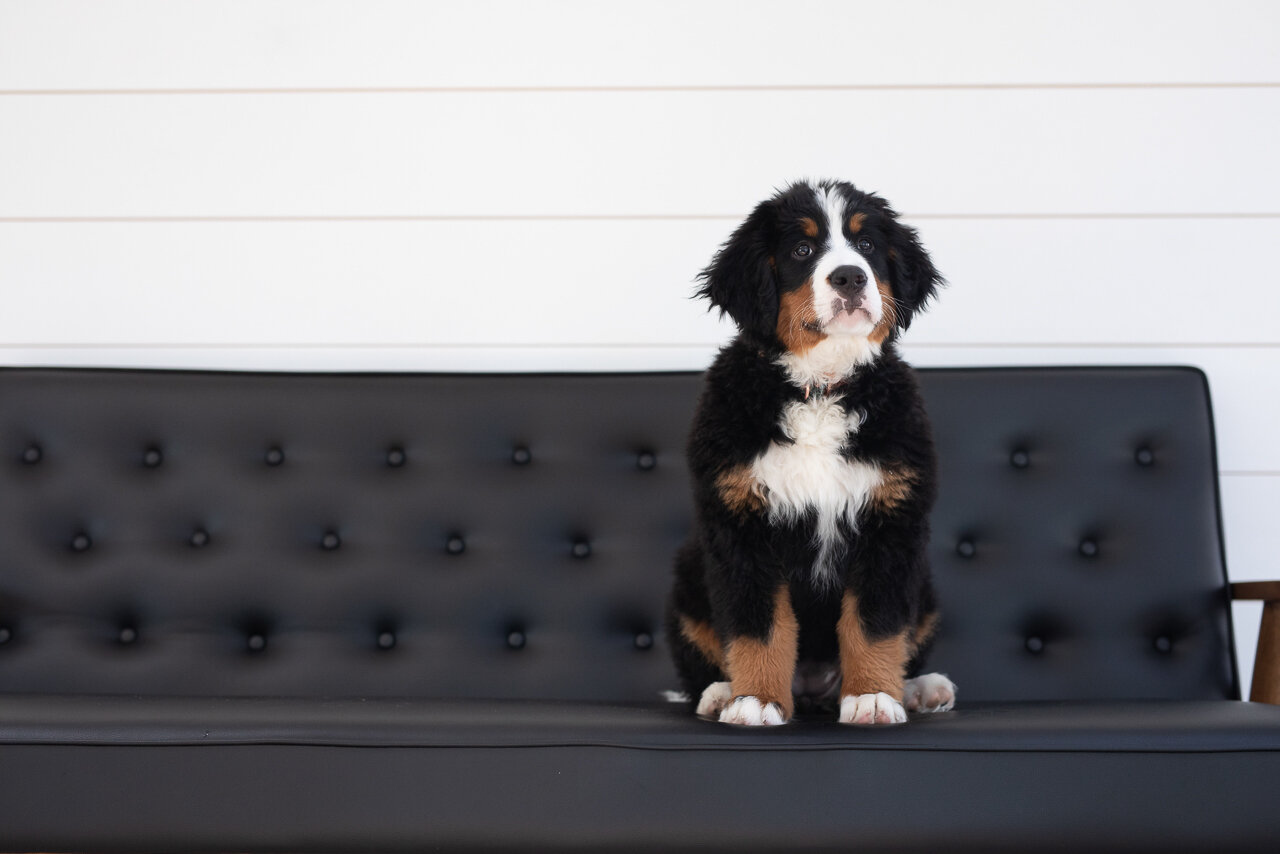
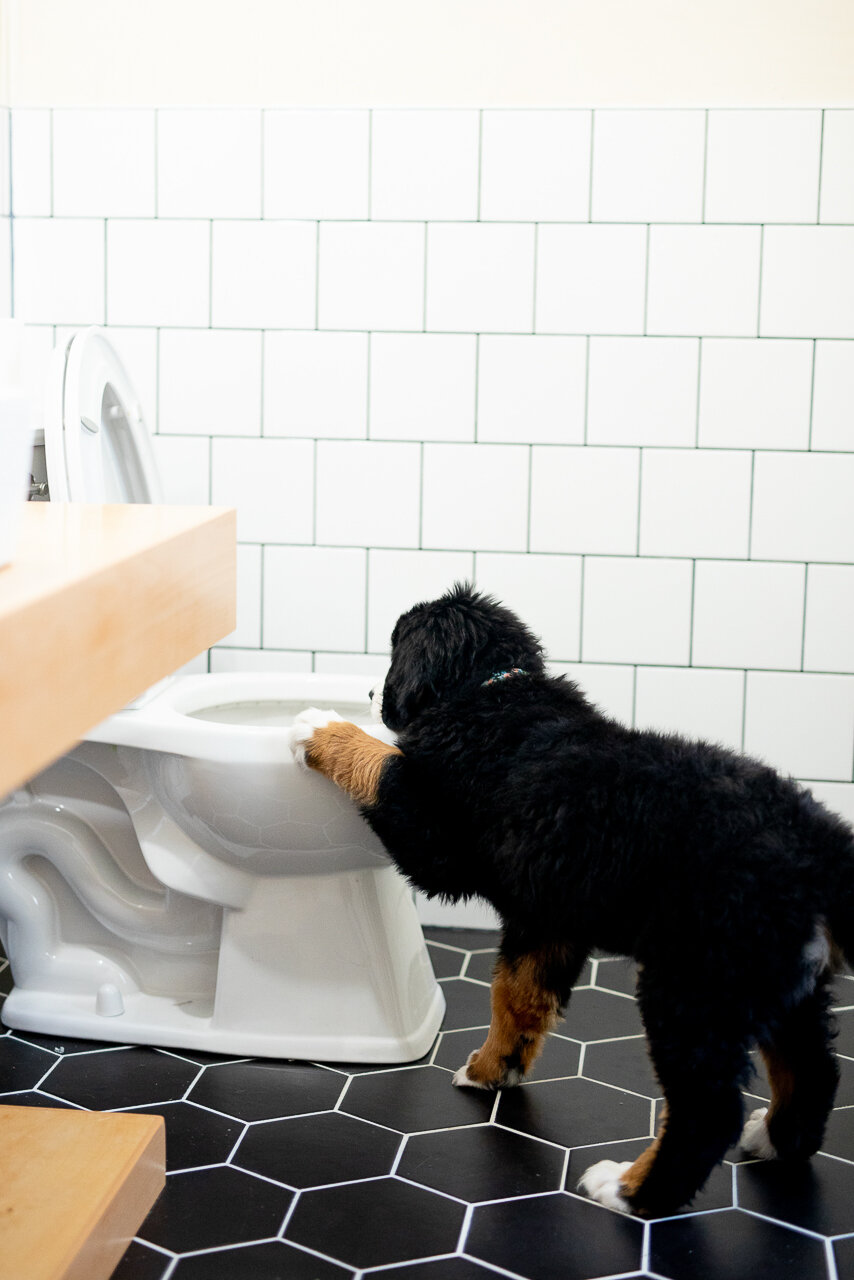
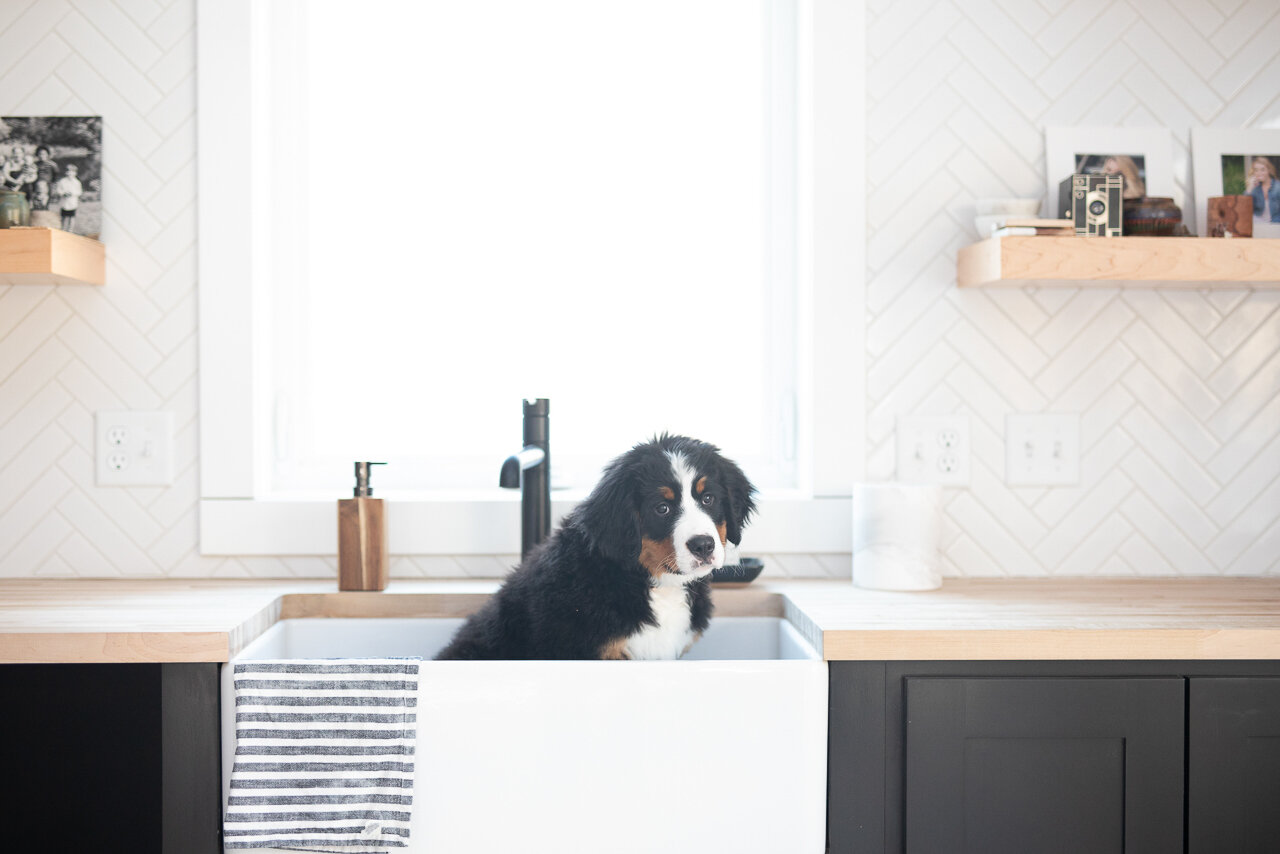
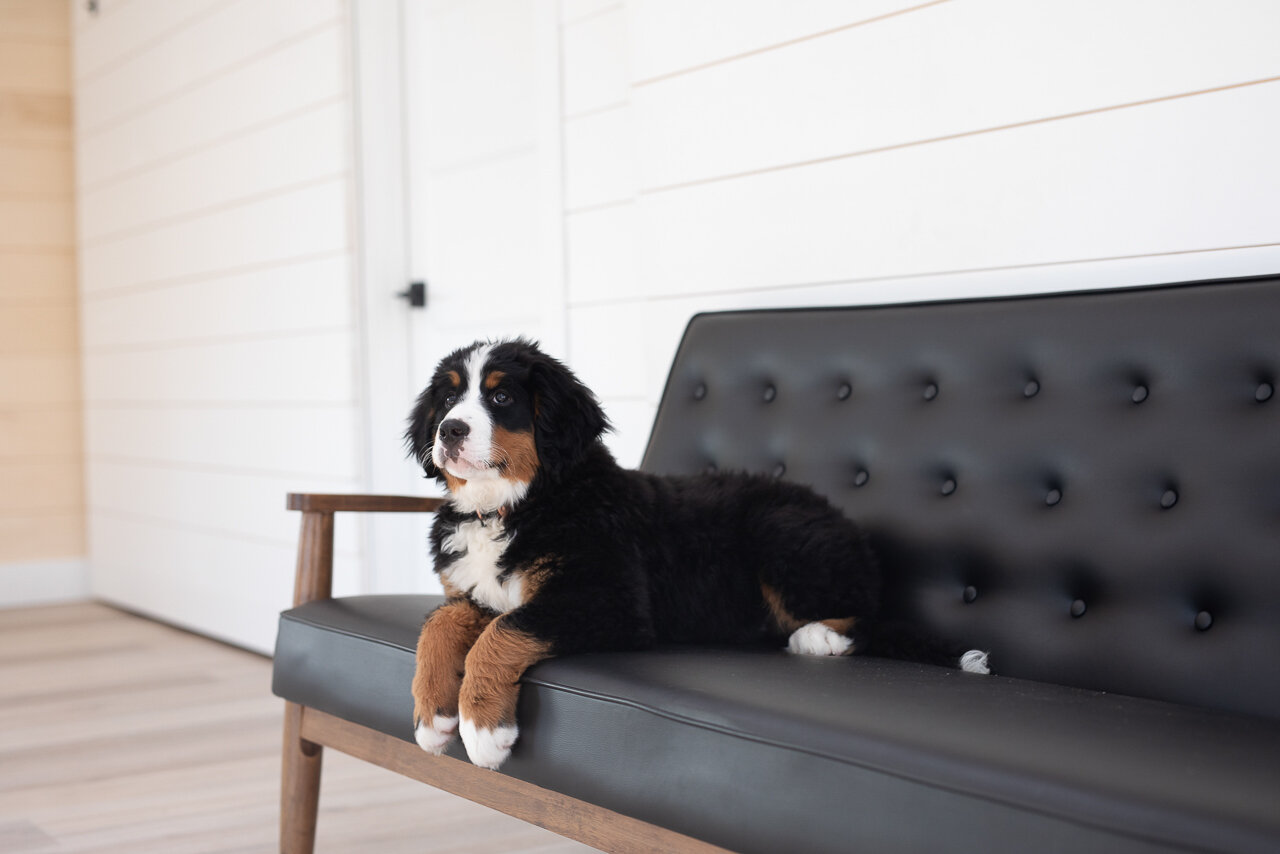
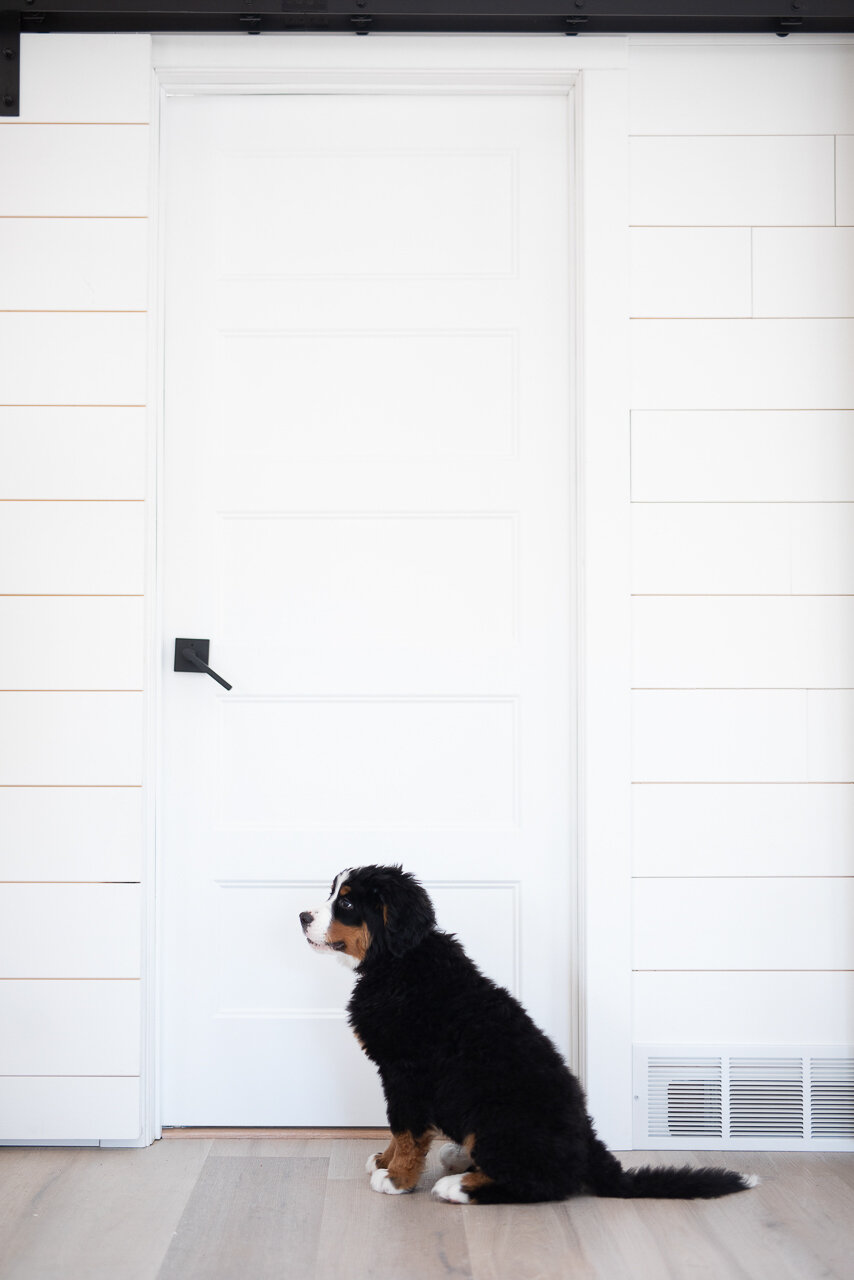
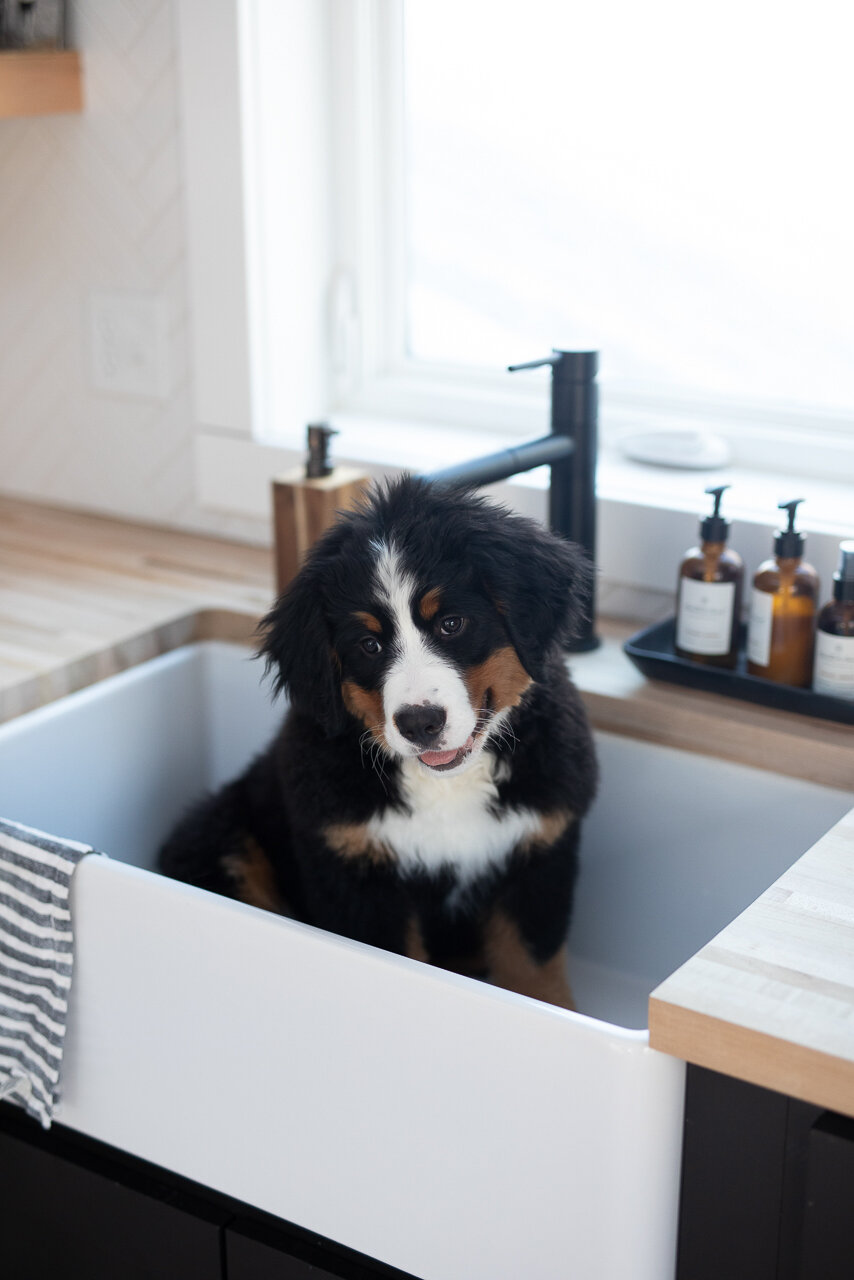
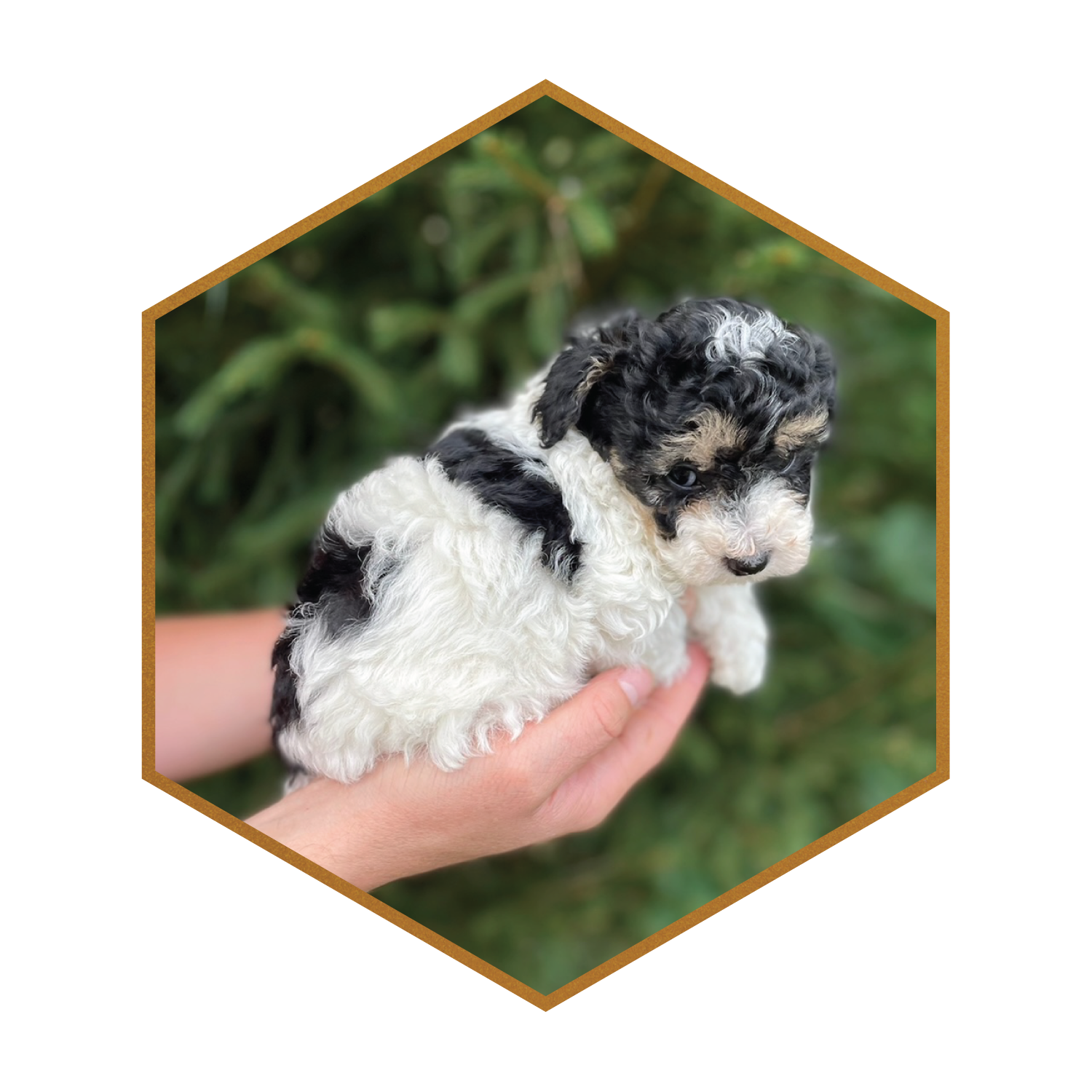
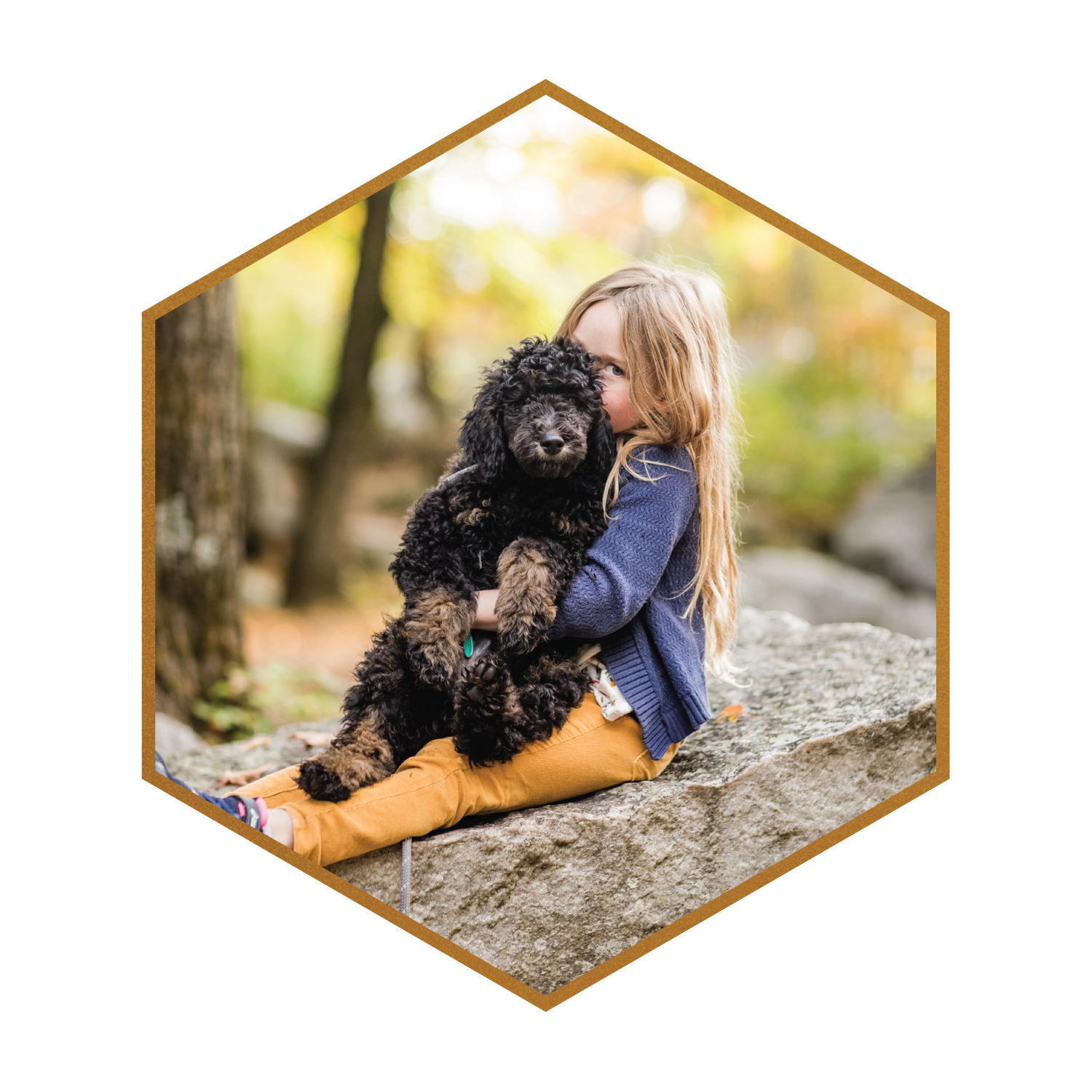
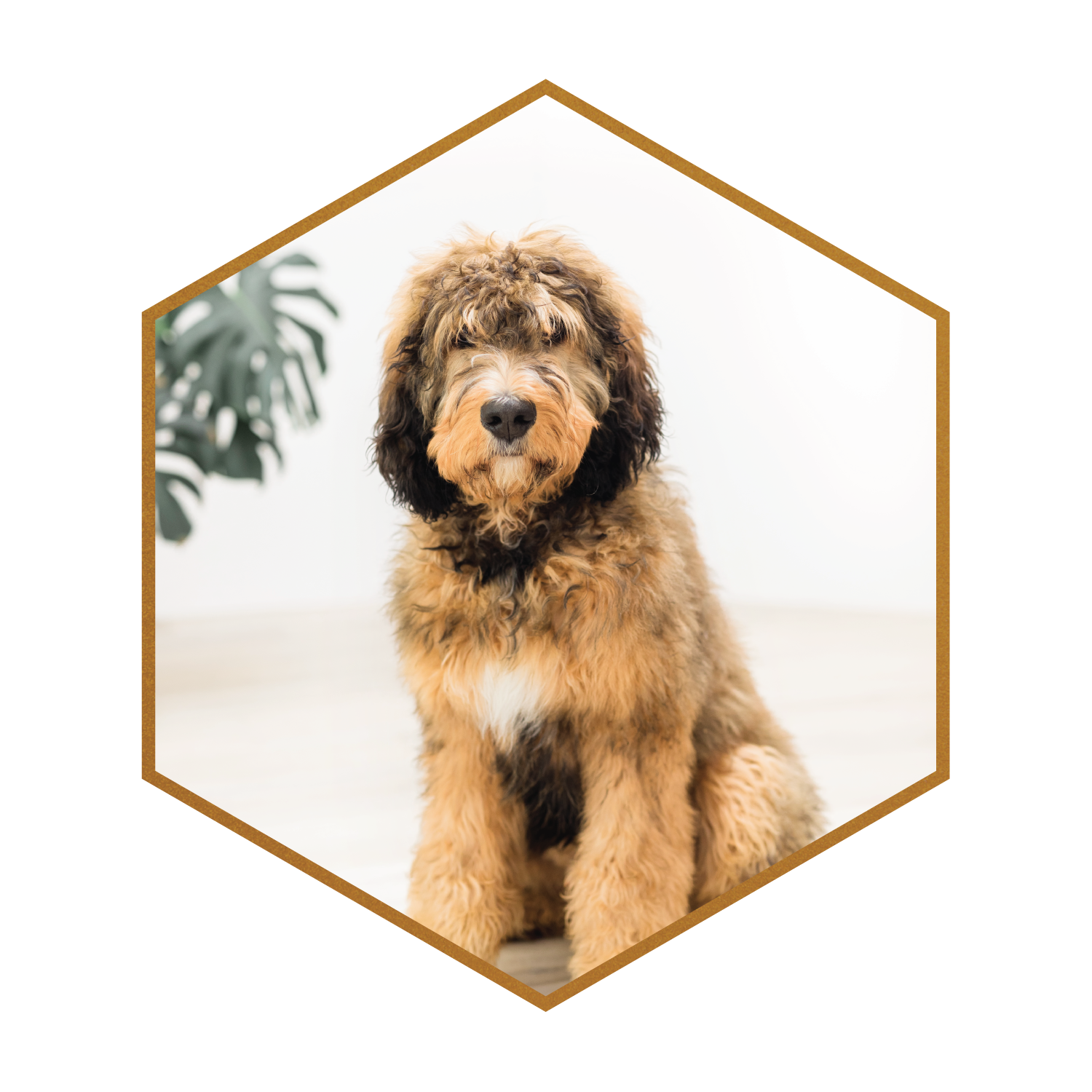


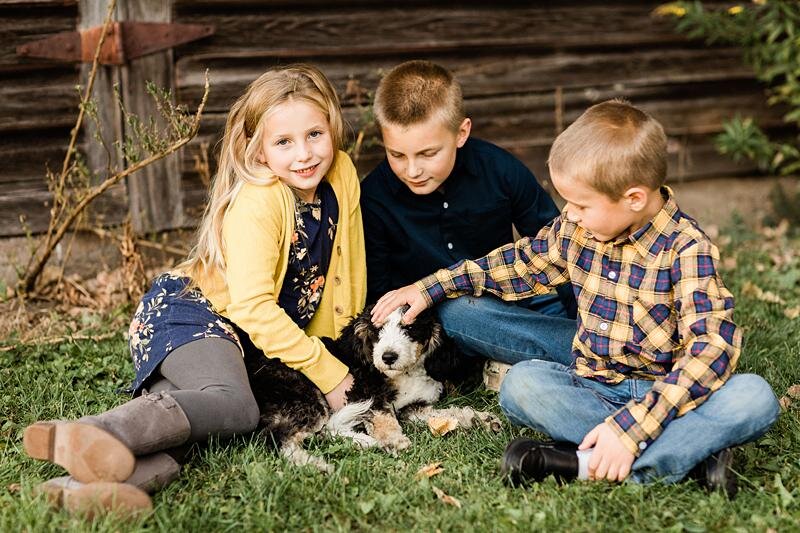






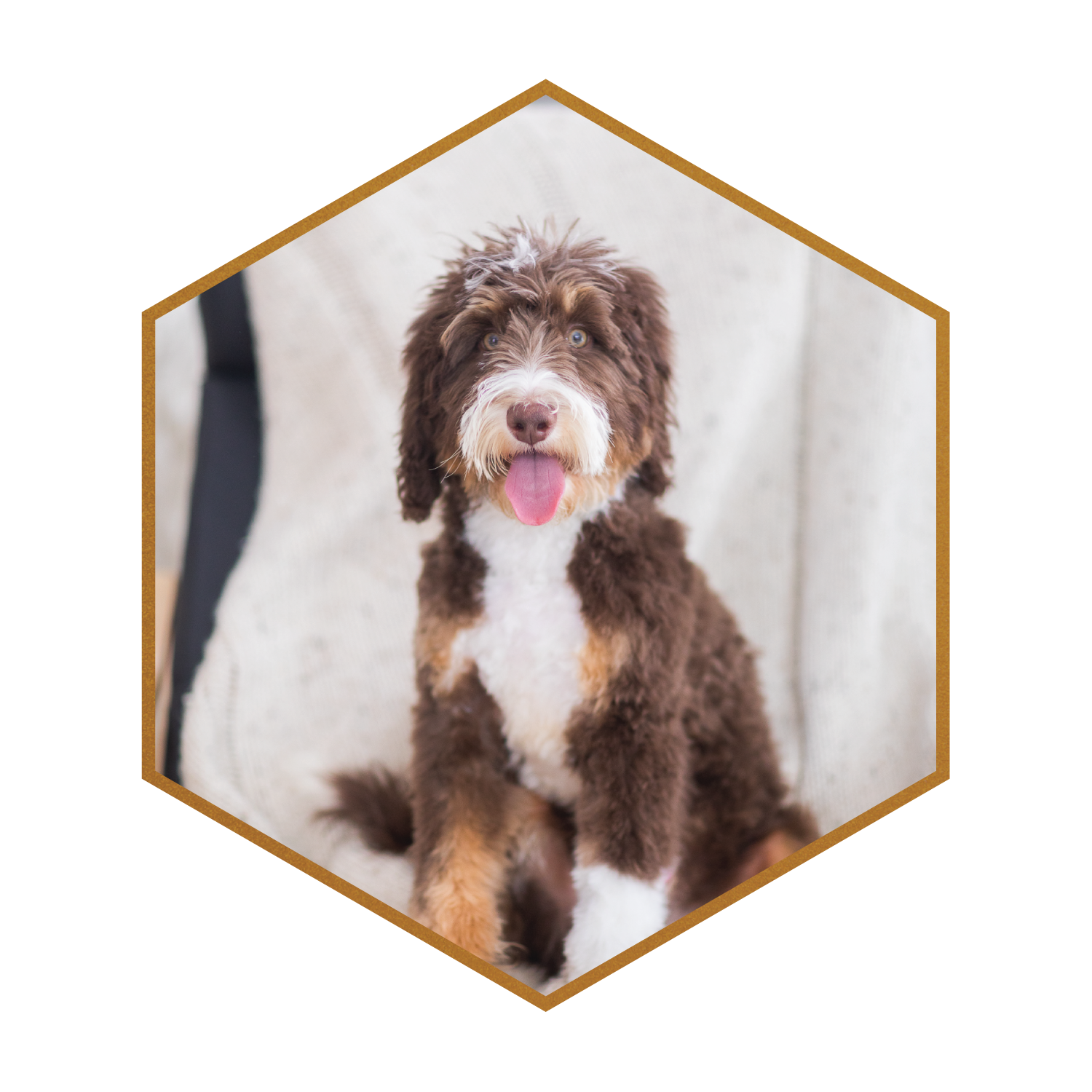

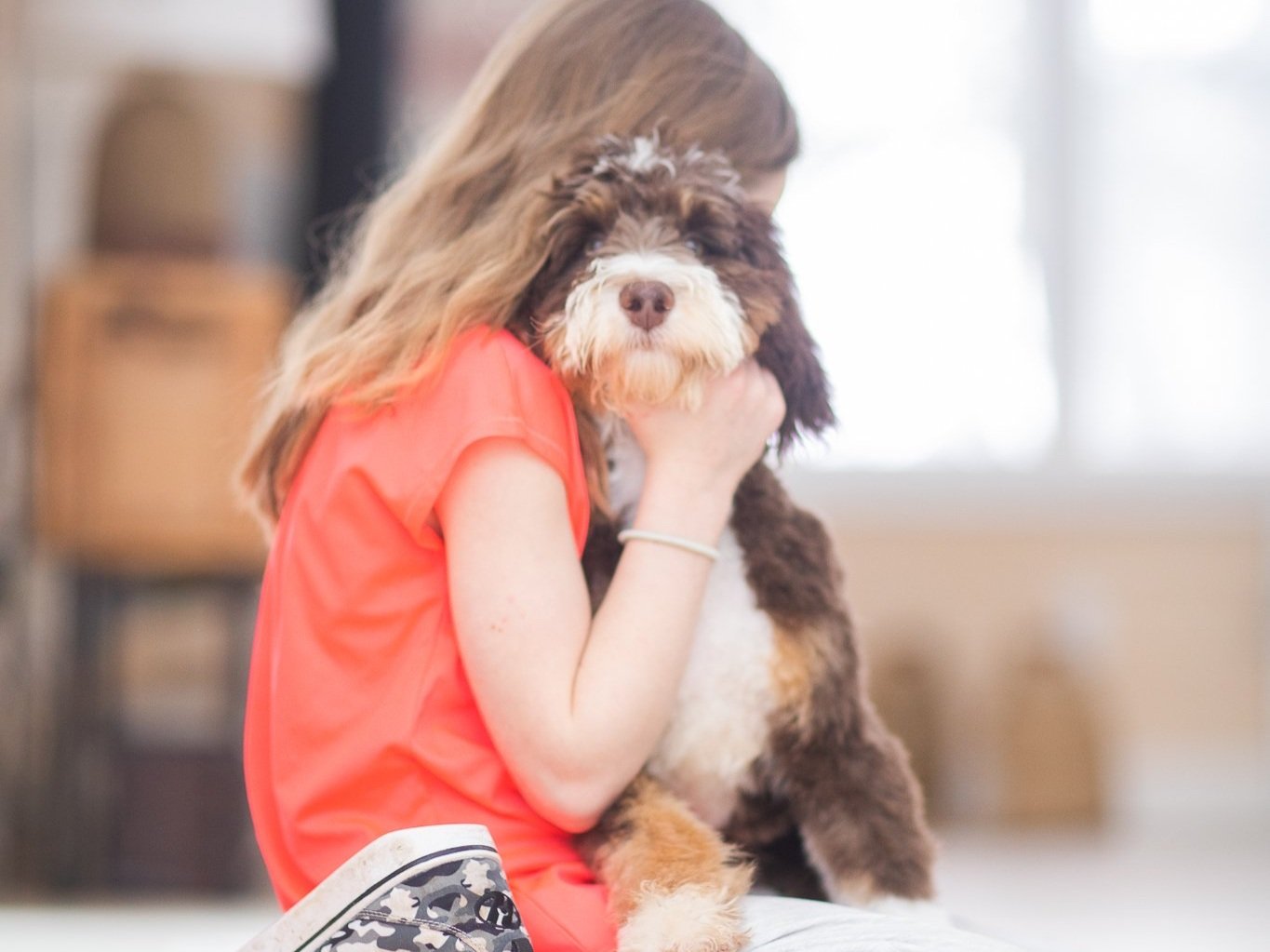
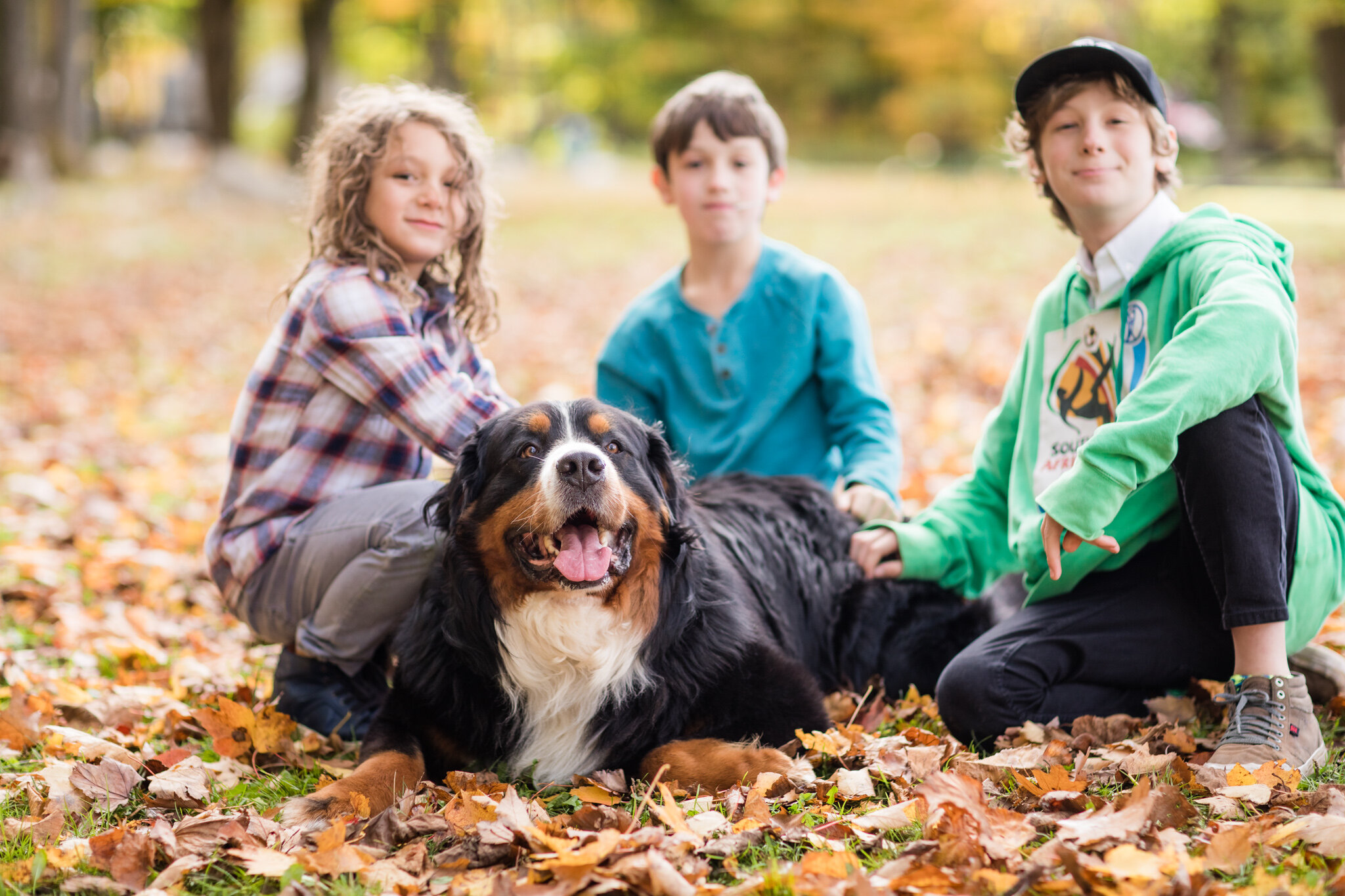
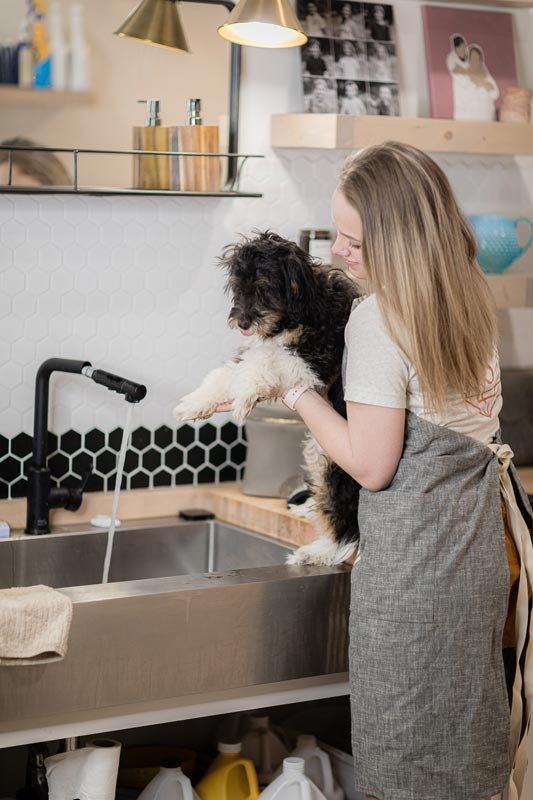
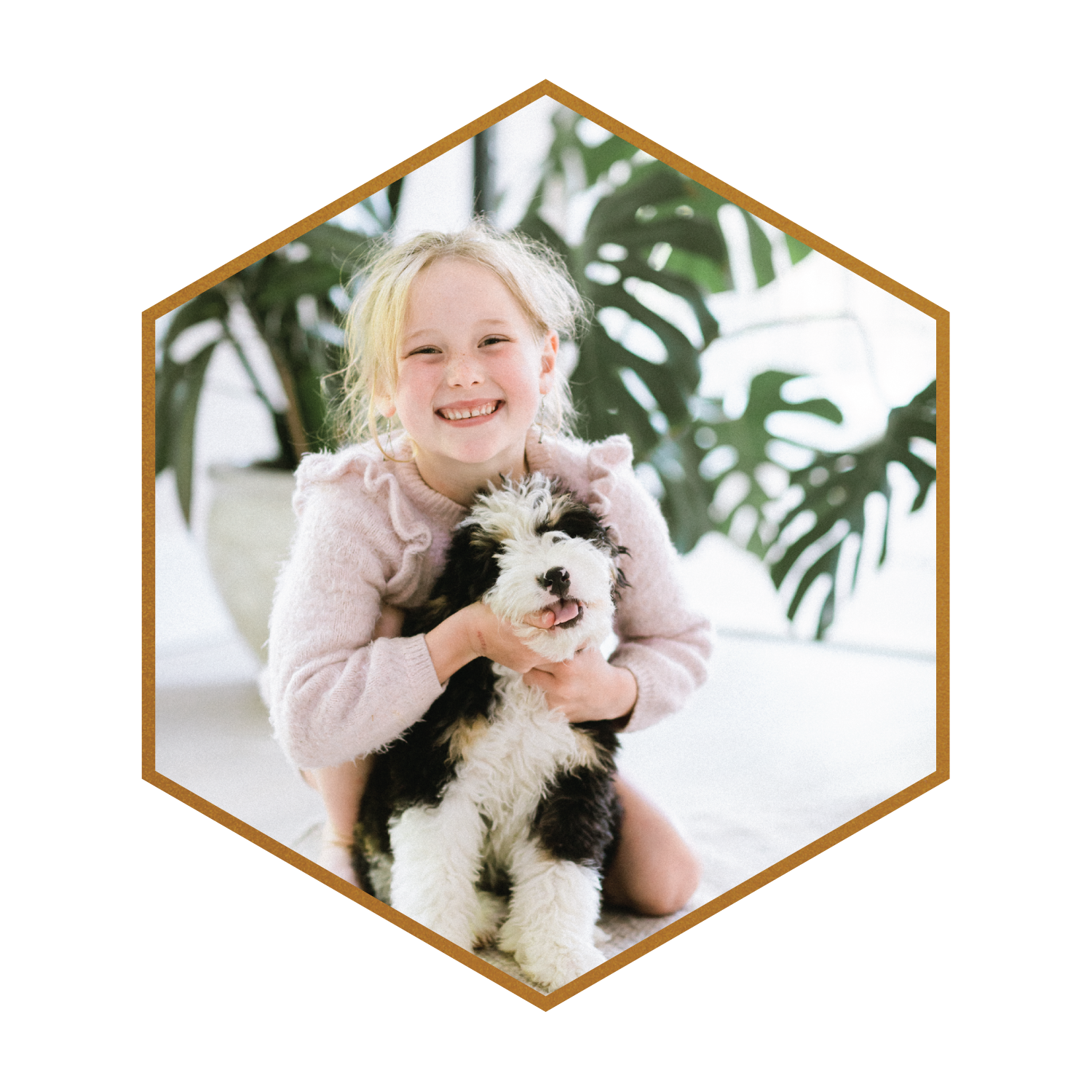
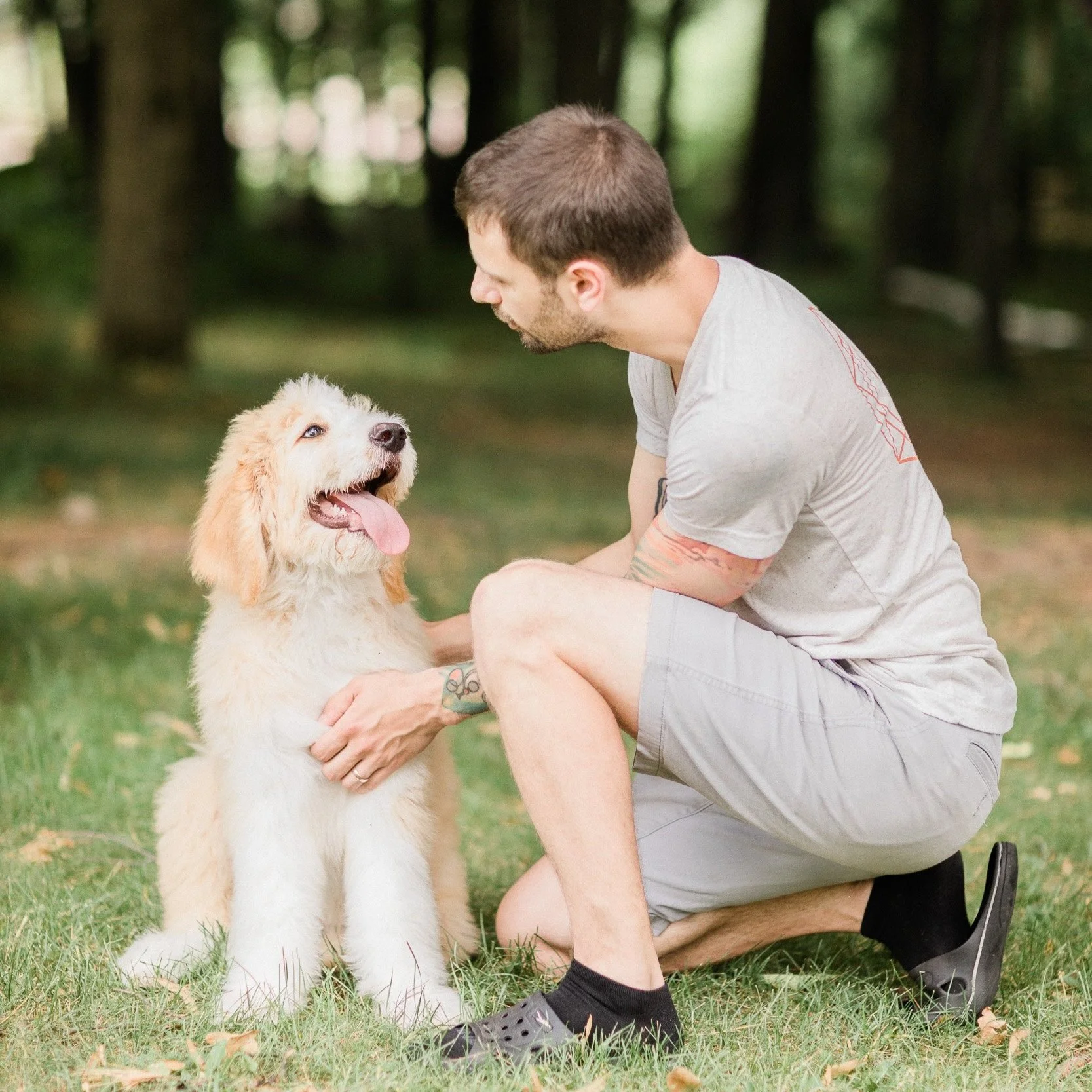
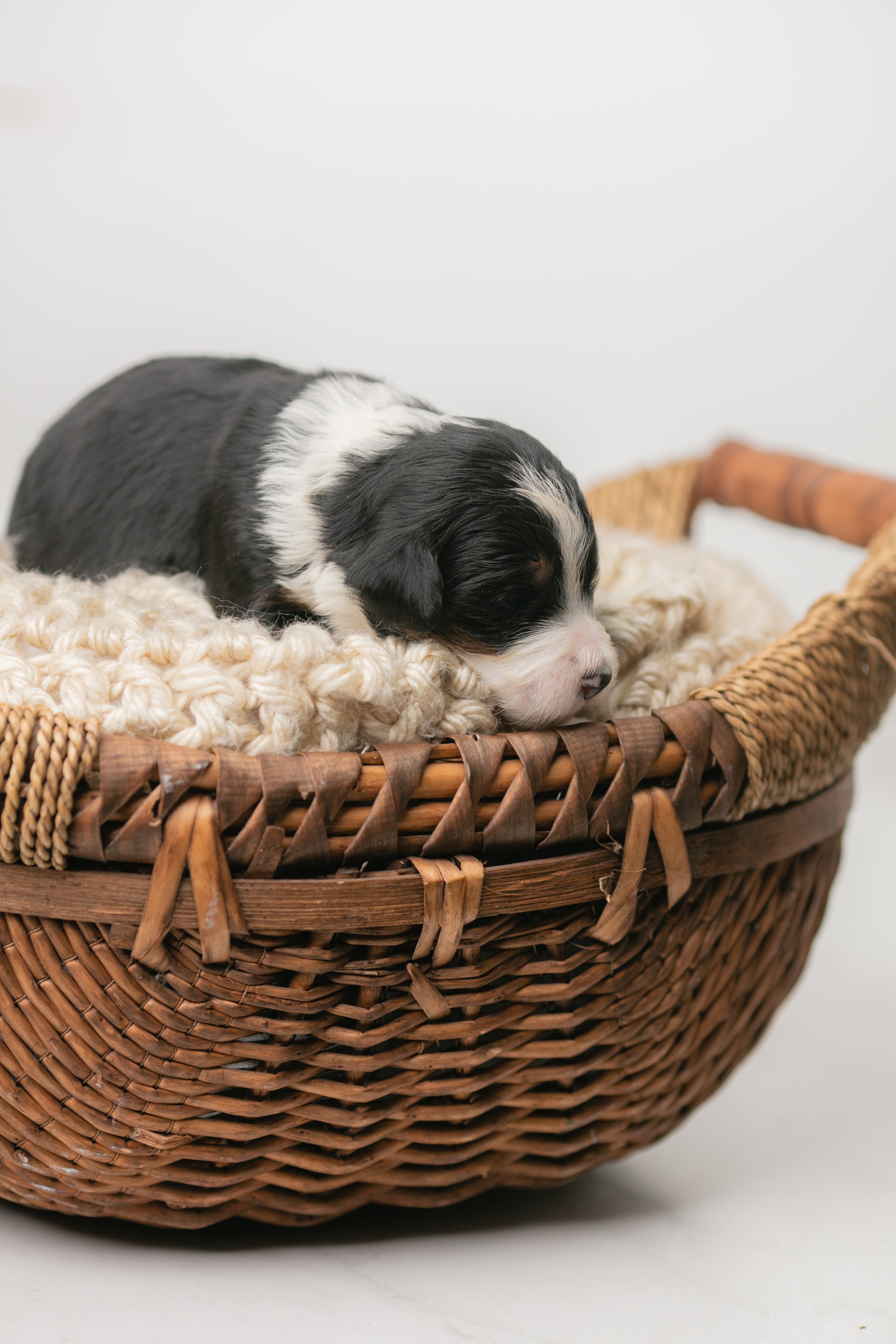
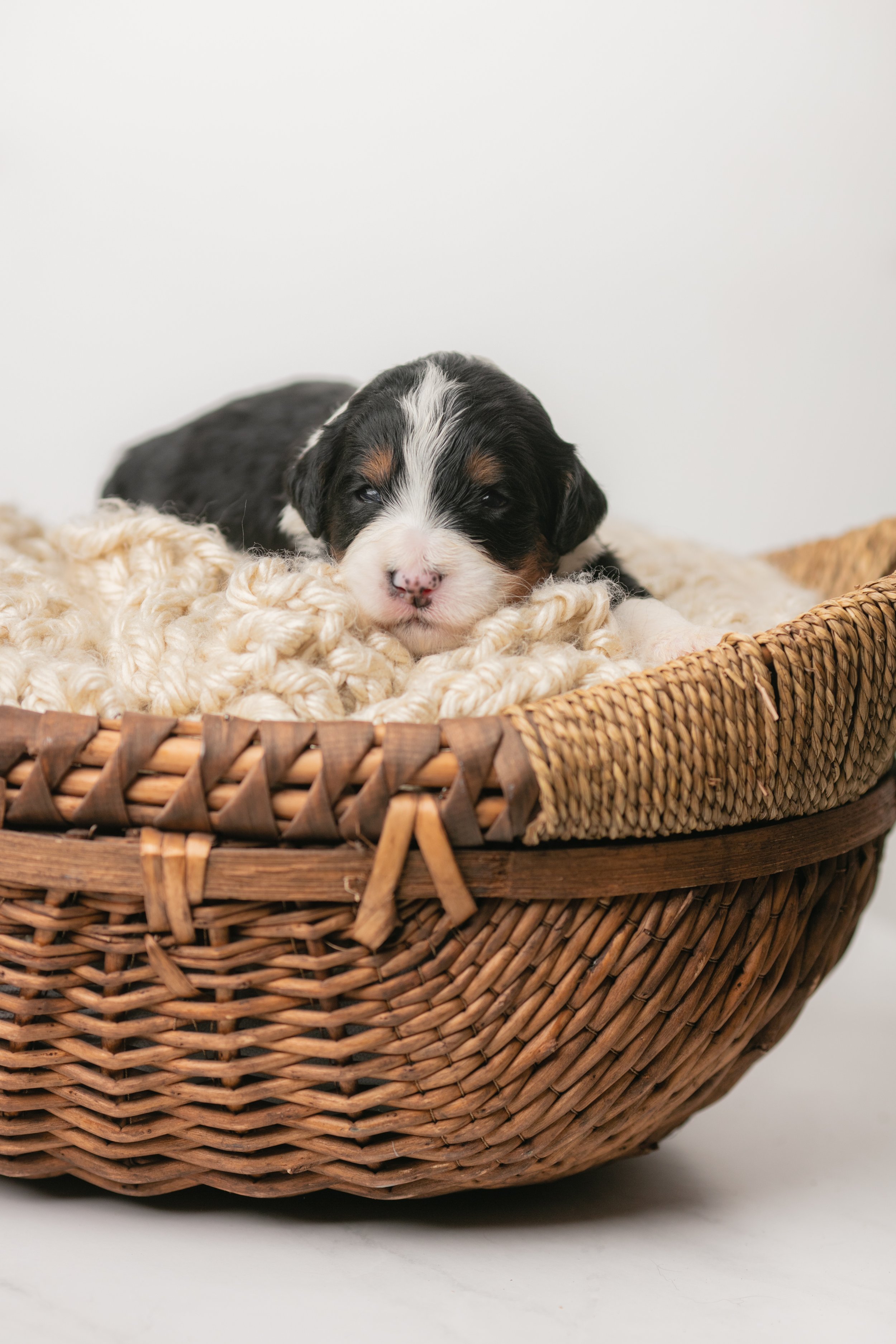
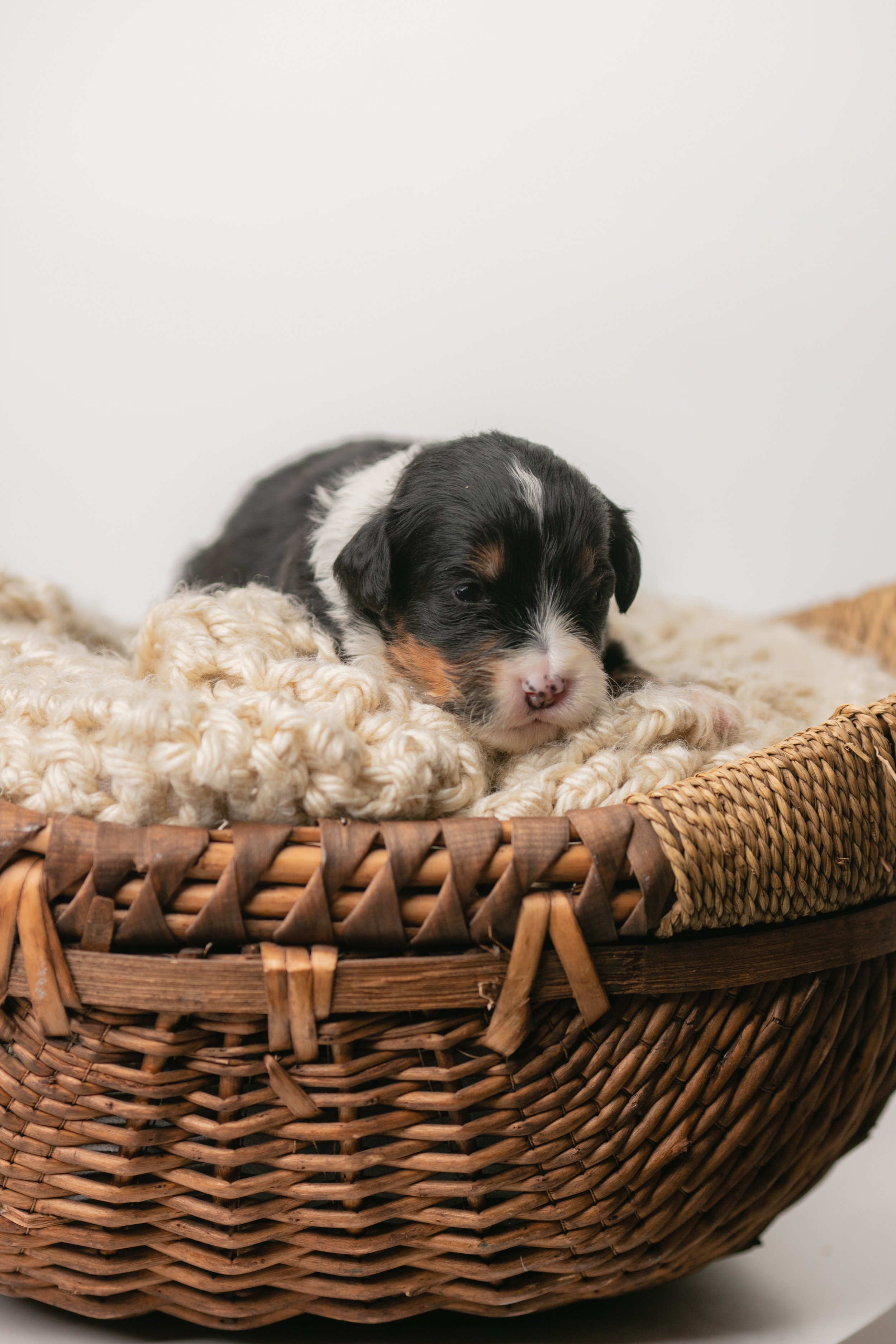
This deposit ensures your spot on our official waitlist. First-pay, first-serve basis.
AI x 2 — CONCEPTION OCCURRED
03 June 2025: Actual Heat Start
15 June 2025: Estimated Conception Date (based on breeding & ovulation progression)
19 August 2025: Estimated Delivery Date (63 days post-conception)
14–16 October 2025: Estimated Go-Home Date (8 weeks after birth)
OFFICIAL WAITLIST
BREEDERS CHOICE
Coon Family - Excelsior, MN (PICK OF LITTER 1)
VanGoethem Family - Eden Prairie, MN (PICK OF THE LITTER 2)
Wen Family - Saint Louis, MO - (Male Tri)
Yager Family - Freedom, WI - (Merle Tri)
Nieto – Tampico, MX – Male Merle Tri
OPEN